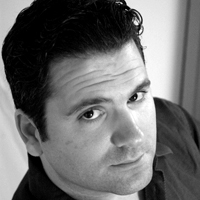Few places in Detroit were more crowded on July 23 than the intersection of 12th Street and Clairmount Avenue.
A police raid on an illegal after-hours club sparked the Detroit 1967 Riots, known locally as a Rebellion. It was the worst of all the riots that would rock American cities in those years, resulting in at least 43 deaths and a vastly changed Detroit.
50 years later on that date, that same corner was full of activity, combining a sense of celebration with solemn remembrance. Much has changed: 12th Street is now Rosa Parks Boulevard, honoring the civil rights heroine who lived nearby.
The building where the riots began, like most on the street, is long gone, burned or demolished. Gordon Park is here now, and sprouting from freshly turned dirt, a historical marker rises.
Debbie Iam, 10 years old during the riots, was in awe. “To see this sign means so much because one starts to understand what happened at that time,” she told the Daily Beast. She added about the neighborhood wistfully, “It’s getting the attention it should have gotten since 1967.”
Though this anniversary received recognition by the city of Detroit and various organizations, these commemorations have been held since the 25th anniversary. They were started by a neighborhood organization called Brothers Always Together, nicknamed the BATs.
BATs President Lamont Causey told the Daily Beast he hopes all the renewed attention will result in housing, development and African American businesses in this community. He was, however, struck with sadness as his organization co-founder, Derrick Watts, had died over the commemoration weekend.
One project on the near horizon is the renovation of an abandoned house – one of tens of thousands of such structures in Detroit – to create a museum and community center across from the park.
Parker Taylor, Jr., a neighborhood resident whose relatives owned the house, told the Daily Beast, “I am totally grateful. What they are going to turn it into is a tribute to this area and the people.”
Eight years old at the time of the riots, he pointed out buildings that once surrounded the house that are no longer there, from an ice cream parlor, to a jewelry store, to a bike shop.
The commemoration attracted actors, musicians, and politicians. Motown legends The Dramatics arrived in a long white limousine, pouncing out on a red carpet, their black jackets adorned with silver sequins that caught the Detroit sun as they headed to the small wooden stage.
The band is part of riot history, as some of its members were trapped in the Algiers Motel during the police rampage through the hotel resulting in the murders of three young black men.
That event is portrayed by the new Kathryn Bigelow film Detroit, which premiered in Detroit’s Fox Theatre on July 25.
Other dramatic representations of the riots were part of the commemorations. Dominique Morisseau’s play Detroit 67 was performed live by the Detroit Public Theatre. They are performing the piece for free in Detroit and the suburbs during the anniversary period.
Pioneering African-American politician Congressman John Conyers, Jr., currently the longest serving representative in Congress, spoke during the commemorations. A nearly sainted figure in Detroit, he is famous for pleading for calm in those turbulent days.
He spoke of a new Detroit. “We want to spread and continue the goodwill. We want to continue to build relations in the city,” he said, adding, that the world should know of “the remarkable story of how we overcame our differences. We are in a different time and a different situation. It is easy for us to get together now and think nothing of it, but in those days it was a different story entirely.”
Detroit Mayor Mike Duggan told the audience, “I see things starting to come back.” He referenced the city’s troubled past, especially anti-black police violence, but said the commemoration “is about celebrating what is right about Detroit.”
Despite this mood of a Detroit looking forward projected from the stage, a protest by Meeko Williams of Hydrate Detroit challenged the Mayor and other officials to think about the foreclosures and housing seizures for unpaid water bills poor Detroiters, usually African-American, were experiencing, their homes often resold to white outsiders.
Calling Dan Gilbert, the billionaire from Quicken Loans who is working to gentrify the city along with others “a corporate colonist,” Williams was forced out of the park by Detroit Police officers, where he continued speaking loudly from the street.
If any place beyond Gordon Park could be labeled a weekend activity hub, it was the Charles H. Wright Museum of African American History, the largest museum of its type before the construction of Washington’s National Museum of African American History and Culture.
There was also a VIP luncheon for museum supporters on July 23.
Among those attending was Detroit native Beverly Bantom, whose fashion design company puts out NativeDetroiter branded clothing. Pointed to the logo across her own chest, she told the Daily Beast it is all one word together, showing Detroiters’ unity. With a broad smile, she added “You’ll notice the logo also curves up. Detroit is coming back!”



